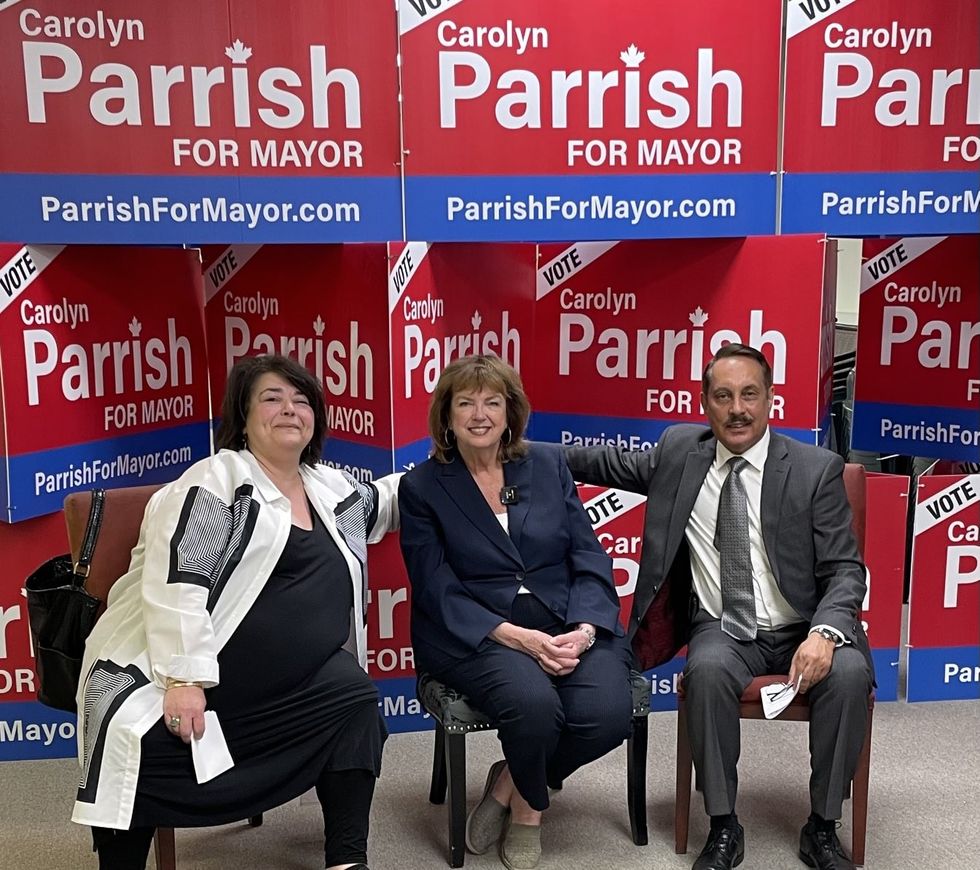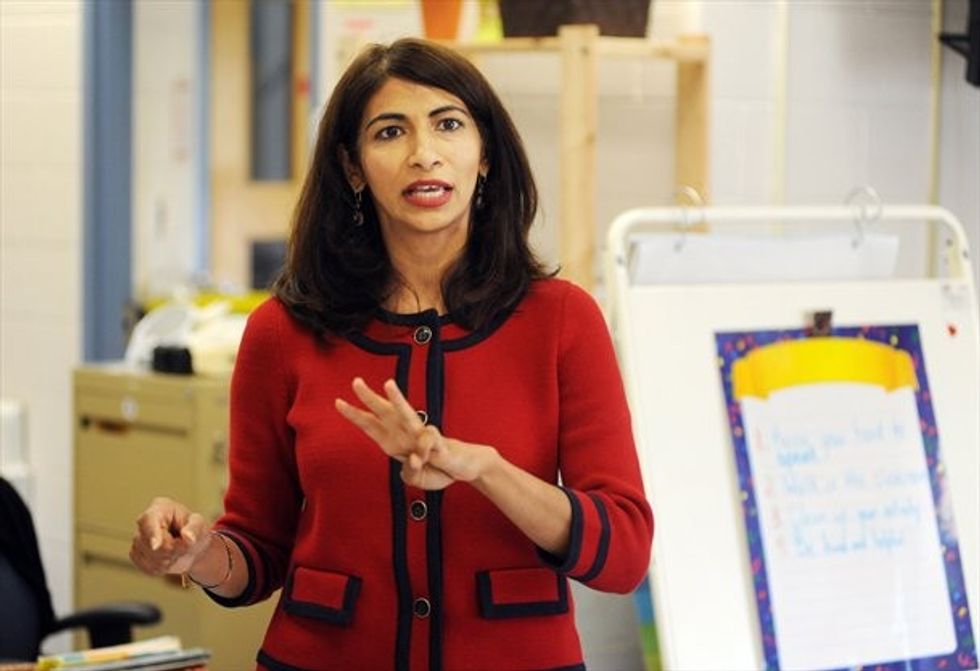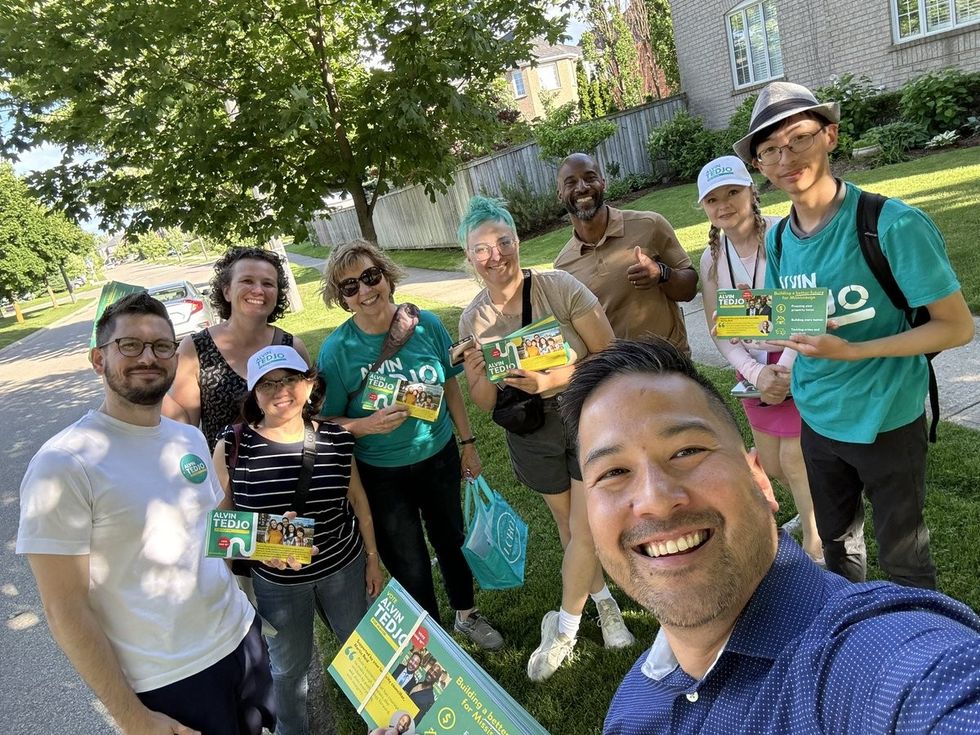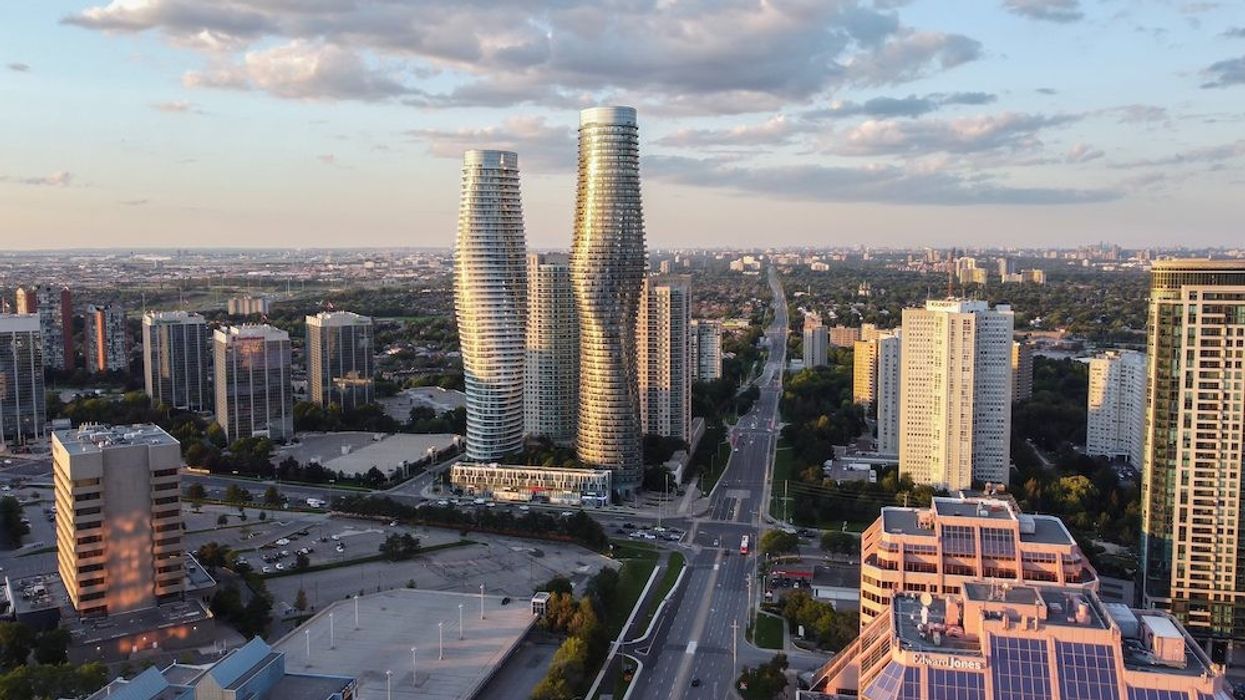There are 20 candidates running in Mississauga’s mayoral by-election, set to take place on Monday, June 10, 2024, but according to a recent poll from Mainstreet Research, you really only need to watch out for four of them: Carolyn Parrish (17% support), Dipika Damerla (16% support), Alvin Tedjo (15% support), and Stephen Dasko (12% support). According to Mainstreet's poll, 33% of potential voters remain undecided.
With rents and home prices continuing to increase, housing and transportation have shared the limelight throughout the campaign cycle. From lowering property taxes for seniors to revamping bike lanes, here's how the front-running candidates plan to tackle these major topics of interest for voters.
Carolyn Parrish
After launching her campaign on March 14, 2024, the long-time Ontario politician and former member of the House of Commons, pledged to “improve the lives of those living in our city while keeping our property taxes to cost of living increases or less,” via her platform.
On the issue of housing affordability, Parrish plans to reduce efforts to develop fourplexes and other gentle infill approaches, saying “they need very unique lots and won’t solve our problem.” Instead, she has stated that she will redirect energy into rezoning existing infrastructure.
This would include turning spaces like vacant office buildings and declining malls into mixed-use and affordable housing with walkable green spaces. To achieve this, Parrish says she plans to assemble a “Mayor’s Advisory Panel, made up of our best developers,” to help streamline that process.

In a city where existing infrastructure prioritises cars and makes public transit commutes feel more like odysseys, it’s no surprise that bike lanes and improved transit also became hot topics on the campaign trail. For Parrish’s part, she plans to do away with notoriously unsafe painted bike lanes and install bike curbs and more speed humps on roads. To improve transit: she's calling for an all-day GO to Milton, an east-west connector to the LRT, and improved transit designs to eliminate the soul-crushing experience of a closed-door bus zooming past you at rush hour.
As for the highly contentious Bloor Street car lane reductions, Parrish seems to be more focused on improving public transit than infrastructure for cars.
Dipika Damerla
Since launching her campaign on March 7, 2024, current Mississauga City Councillor for Cooksville and former Minister of Senior Affairs has centred her campaign around “smart growth.”
“Growth comes with a risk—if it is done wrong, it will make our city unlivable. Growth done right, however, will make our city both affordable and livable,” she says on her platform.
When it comes to housing, Damerla’s platform is big-picture-oriented, pledging to make new dense neighbourhoods more walkable and populated with conveniences like daycares, restaurants, hardware stores, and more.
At the More Homes Mississauga’s housing debate between Damerla and Alvin Tedjo, we got a better idea of how she plans to facilitate the growth of these neighbourhoods. During the debate, Damerla pledged to reassess the building application process to do away with required pre-construction studies that are “not adding any value.” She also discussed rewarding high-quality development applications with decreased city fees for the developers.

In a live discussion with CBC News, Damerla identified where her housing plans differ from the other candidates, saying she wants to focus on managing growth. “We have to build new housing,” she says, “but we have to manage the growth so we don’t end up with congestion.” Damerla then turned to an issue she’s been rallying against over the course of her campaign: the two-lane reduction on Bloor.
In bold red print on her platform, Damerla pledges, “I will stop the proposed removal of car lanes on Bloor Street.” She sees the move as impractical when the city is adding “1,000 new rental units on Bloor Street and [...] 1,200 new parking spots.”
However, though she focuses on maintaining vehicle infrastructure, she also pledged to “fast track [...] high-quality reliable transit to minimise congestion.”
Alvin Tedjo
Since launching his mayoral campaign on January 25, 2024, the City Councillor for Park Royal, Lorne Park, and Clarkson, has focused on housing affordability and growth. “People are struggling to make ends meet, housing is becoming out of reach for too many, and things are changing fast. [...] We need someone who has the energy to tackle these issues head-on and build a better future for Mississauga,” reads his platform.
In order to lower cost of living, Tedjo has pledged to keep the City’s residential property tax increases at 0% until 2026, and lower property taxes for seniors and small businesses. And when it comes to providing more homes, the councillor wants to focus on “missing middle housing and adding density in key core areas.”

On the topic of expediting housing, Tedjo pledges a similar approach to Damerla, focusing on the development applications process. At the More Homes Mississauga’s housing debate, Tedjo similarly honed in on removing requirements like wind studies, excessive setbacks, and angular plane rules, which limit occupancy levels.
In transit, Tedjo is pledging to “build a rapid transit grid across the city, and invest in more buses and operators.” He also wants to connect the Hurontario LRT with a new Dundas East LRT.
Stephen Dasko
Dasko, City Councillor for Lakeview, Port Credit and Mineola, launched his mayoral campaign on April 15, 2024, pledging “a world-class downtown, new housing development that fits with the community, and a reliable, practical, and convenient transit system,” according to his platform.
For housing development, Dasko comes with the numbers. He pledges to build 150,000 housing units along transit lines, impose a 20% Foreign Speculators Tax on non-Canadian developers, and implement the “use it or lose it” provincial policy to build 80,000 approved housing units.

He also focuses on improving rental numbers by closing down “illegal Airbnbs” and accessing federal funding to “significantly increase our rental housing supply.”
When it comes to transportation, Dasko wants to improve public transit by “conducting an audit of the most-used transit lines, listening to transit riders, and increasing the capacity and frequency of service accordingly.” His policy also includes building a Dundas subway line, connecting Kipling Subway Station to the Hazel McCallion LRT, and extending the Lakeshore TTC street car service from Toronto into Mississauga to the new Lakeview Village development.





















